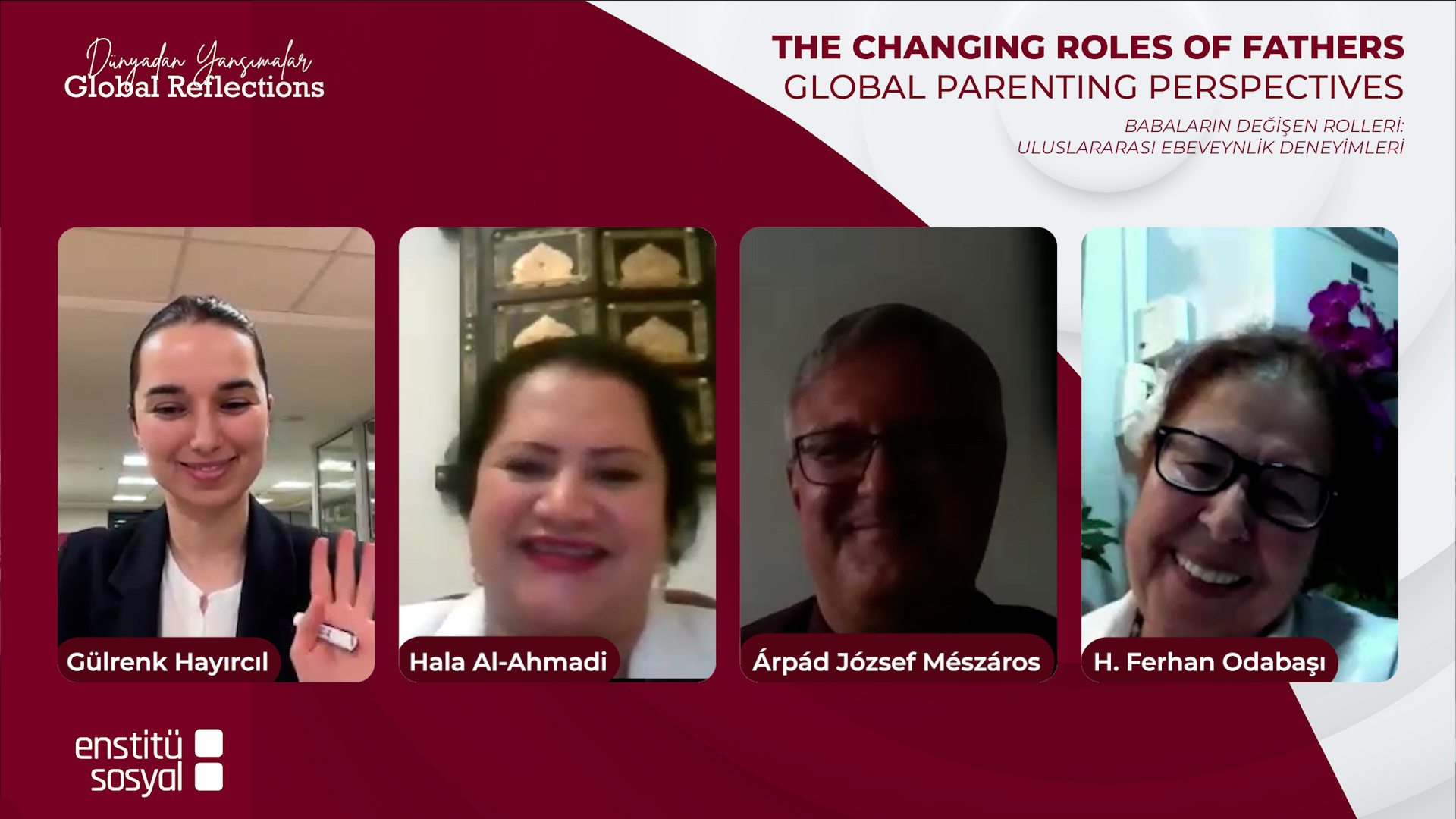
The Changing Roles of Fathers: Global Perspectives on Parenting
As part of its Global Reflections series, Institute Social recently hosted a thought-provoking international panel on the evolving roles of fathers within contemporary family structures. Titled “The Changing Roles of Fathers: Global Parenting Perspectives,” the event brought together Dr. Hala Al-Ahmadi from the Doha International Family Institute (Qatar), JD. Árpád József Mészáros from the Maria Kopp Institute for Demography and Families (Hungary), and Prof. Dr. Hatice Ferhan Odabaşı from Institute Social (Türkiye).
The panel explored the intersections of cultural norms, family policies, and digital transformation in shaping fatherhood today. Each speaker provided striking insights from their respective national and institutional contexts.

From Tradition to Transformation: Cultural Codes of Fatherhood
Dr. Hala Al-Ahmadi noted that in the Arab region especially the Gulf fathers have traditionally been seen as protectors and heads of the household, but rarely as primary caregivers. Structural barriers such as limited paternity leave and male excluding institutions continue to restrict fathers’ engagement in child-rearing. Yet research shows that fathers’ emotional and indirect involvement strongly correlates with adolescents’ self-esteem and overall family well-being. Dr. Al-Ahmadi highlighted that the pandemic underlined the importance of flexible, family-oriented work policies.
Double Burden, Uneven Sharing: Insights from Hungary
JD. Árpád József Mészáros shared that as dual-income families have become the norm in Hungary, mothers now carry both financial and caregiving responsibilities, while traditional expectations from fathers remain largely unchanged. Surveys reveal that while most people support shared parenting, the domestic burden still falls disproportionately on women. While 95% agree that parental duties should be equally shared, fathers’ active participation remains limited. JD. Mészáros emphasized that achieving genuine change requires not just shifts in personal attitudes, but also institutional reforms in employer policies, state support, and education systems. Without such alignment, “active fatherhood” risks becoming a hollow ideal.
Fatherhood in the Digital Age: Isolation and Identity
Prof. H. Ferhan Odabaşı addressed the digital dimensions of fatherhood in Türkiye. She argued that the father figure is traditionally seen as strong, inclusive, and emotionally connected, yet also as someone who never needs help. In the digital era, children often outpace their fathers in tech literacy, leading to a quiet transfer of authority within households. Many fathers feel unable to seek support due to societal expectations. Prof Odabaşı called for parenting programs in Türkiye to evolve beyond a mother-centric model and to include fathers as active participants in the digital family environment.
A New Vision of the Family?
The panel emphasized that fatherhood is more than financial provision, it is an emotional, pedagogical and social responsibility. International examples revealed the necessity of more equal caregiving, the importance of initiating gender equality at home, and the urgency of redefining fatherhood in the digital age.
For more information, you can watch our video.
https://youtu.be/TfSL2GlTrpY?si=QlZ_hmu968l2CvSo
